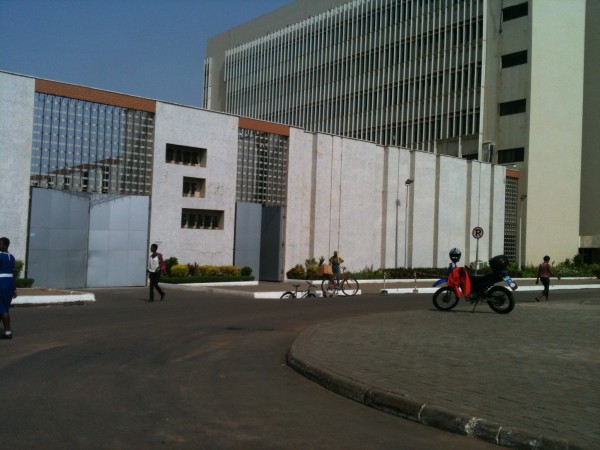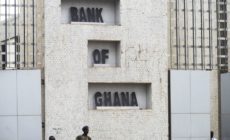Bank of Ghana increases policy rate
- Posted on
- Comment
 Lending rates of commercial banks are expected to go up after the Bank of Ghana (BoG) increased its policy rate from 25 to 26 percent.
Lending rates of commercial banks are expected to go up after the Bank of Ghana (BoG) increased its policy rate from 25 to 26 percent.
The increase in the policy rate, according to the bank, is to contain inflation, which currently stands at 17.4 percent and ensure the maintenance of the existing tight monetary policy stance while operating in the corridor set by the Monetary Policy Committee.
The current policy rate, which is the highest since December 2003, was announced yesterday at the last press conference of the MPC of the Bank of Ghana (BoG) for the year 2015.
The policy rate is the rate at which commercial banks borrow from the Central Bank.
Interest rates, which currently hover around 35 percent on the average, are expected to go up owing to the increase in the policy rate.
Dr. Kofi Wampah, Governor of Bank of Ghana (BoG), who addressed the media yesterday, said maintaining a tight monetary policy stance will reinforce the relative stability in the foreign exchange market and dampen risks related to the external financial conditions.
He explained that assessment of current economic conditions show that though monetary policy remains tight, some additional tightening is required to re-anchor the displaced inflation expectations.
“This, together with the on-going fiscal consolidation, is expected to break the high inflation inertia. Our current forecast show that without any additional policy adjustment, inflation is likely to drift farther away from the target band and lengthen the forecast horizon into late 2017,” the governor said.
Growth
Dr. Wampah said the Bank’s Real Composite Index of Economic Activity (CIEA) for September 2015 indicated a slower pace of growth compared with the same period in 2014.
However, he said in the medium-term, growth conditions are expected to recover, supported by turnaround in the energy situation, increased production of oil and gas and general improvement in the macroeconomic environment.
Fiscal consolidation
The governor indicated that fiscal consolidation remained on track, adding that “for the first nine months of the year, overall budget balance registered a cash deficit of 5.1 percent of GDP, which is within the programme target of 5.7 percent.”
He noted that maintaining the fiscal consolidation efforts would complement the tight monetary policy stance for the attainment of the medium-term inflation target.
“This would in turn help create conditions for long-term sustainable growth.
By Cephas Larbi










 (Selorm) |
(Selorm) |  (Nana Kwesi)
(Nana Kwesi)